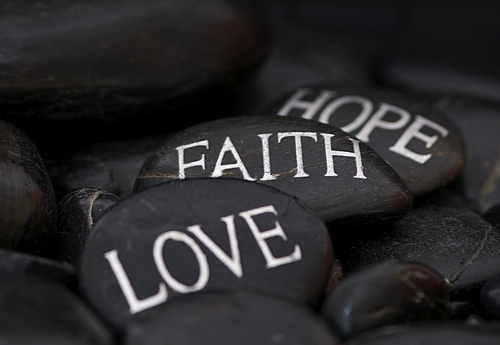Teach Your Children: Assisted Suicide and My Family
 Public Discourse 14 January 2015
Public Discourse 14 January 2015
Rich and I come from a very large family. My paternal grandparents had eight children, twenty-four grandchildren, sixty-five great grandchildren, and over a hundred great-great grandchildren. Then there were my grandmother’s siblings and their families, my grandfather’s siblings and families, and my mother’s family. There were hundreds in our family—not even counting in-laws!
Over the years, we lost grandparents, parents, aunts and uncles, cousins, brothers and sisters, nieces and nephews. Some of us lost children and even grandchildren. We have experienced virtually every kind of end-of-life scenario. While there is always a measure of sadness—especially when suffering and death come unexpectedly—the deaths of our family members were always marked with a celebration of life. Therein lies the paradox. With each death, we feel diminished. Yet, with the realization of the fullness of our loved one’s life, we feel more fulfilled.
Rich’s Story
My cousin Rich is a bright intellectual. For many years, he was the president of the Meadowlands Chamber of Commerce. He poured his life into service, founding two charities and serving on the boards of six others. He served on numerous state commissions, working to improve New Jersey’s literacy, employment, and natural resources. Rich was also the founder of Meadowlink, the finest transportation management association in the United States. Always a gifted writer, Rich was a professor at Fairleigh Dickinson University, where he helped develop a program to allow the New York Giants’ football players to complete a college education. He forged long-time friendships with some of those players, including George Martin, the captain of one of the Giants’ Superbowl teams.
Nine years ago, in October 2005, at the age of fifty-five, Rich Fritzky was suddenly and brutally stricken with Neisseria Meningitis, a particularly deadly disease. He slipped into a coma, and his wife and twelve children were told that he would die within a matter of days. In fact, the physicians who cared for him said it was impossible for him to survive. Yet he remained in a coma for four months. During that time, every one of his major organs, at one time or another, failed to function. His heart stopped. His kidneys failed, and he flat-lined.
His wife was told that, if by some miracle he were to survive, Rich would never recognize her or their children again, nor would he be able to have a cognitive thought. The physicians thought Rich’s family should pray for his death, not for his life.
They prayed for his life.
While in the coma, Rich’s heart had to endure six weeks of fever that reached 107 degrees—six weeks during which he had to be packed in ice. For six months, the physicians continually repeated that Rich’s death was imminent. On one occasion, when I visited the comatose Rich, his face had necrosed. It was entirely black. For six months, Rich Fritzky did not move, did not breath, did not swallow, and did not speak.
But Rich came out of his coma. He awoke to find that both of his legs had been amputated, as well as all ten of his fingers. His hospitalization lasted fifteen months and included a vigorous and painful rehabilitation, a failed effort to fit prosthesis, continual bouts with infections, and difficult-to-manage bed sores. Although the illness left his body broken and scarred, his mind and wits were as keen as ever, and he loved his family more than ever before.
When he returned home, the man with no fingers had to teach himself to type. His pain was often excruciating, and he had many subsequent hospitalizations and operations. Three years ago, he was forced to endure dialysis three days a week. Last summer, after a number of false starts because of infections and weakness, he successfully underwent a kidney transplant, donated by one of his sons.
Rich went back to his teaching job at Fairleigh Dickinson. Over the past four years, he has written three books and helped two other authors to write theirs. His children finished their education, and one of his sons is currently finishing medical school. In recent years, on at least three separate occasions, he was told that his death was a certainty—that it would occur in a matter of days or a week. Every day for the past nine years, he has experienced extreme pain.
Yet a month ago Rich Fritzky told me that his life has never been more exciting, more fulfilling, or more purposeful.
http://www.thepublicdiscourse.com/2015/01/14270/






